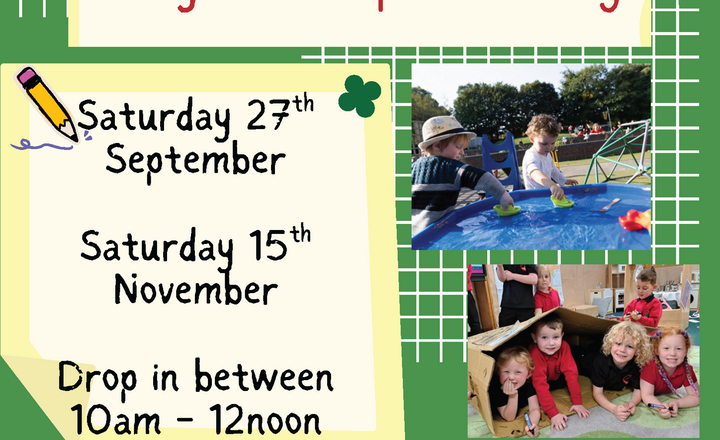Early Years Foundation Stage
There are three prime areas of learning underpinning the EYFS. These are:
- Personal, Social and Emotional Development
- Communication and Language
- Physical Development
There are four specific areas of learning as well as the prime areas in the EYFS. These are:
- Literacy
- Mathematics
- Understanding the World
- Expressive Arts and Design
These are skills that your child will develop and are less time sensitive.
Within our setting we have a balance between adult-planned and child-initiated activities; both of which enable children to participate and succeed. As Early Years practitioners we recognise that there are times when we need to lead learning using explicit teaching approaches and times when we are more spontaneous – taking advantage of a daily routine or following a child’s line of inquiry in a way that supports their development.
High Quality Interactions
The most important part of any activity be it adult-planned or child-initiated is high quality interactions. There are several decades of research stating that high-quality early childhood education has a positive effect on children’s educational, cognitive, behavioural and social development. The research highlights the need to prioritise the development of young children’s early communication and language, with an emphasis on engaging in high-quality interactions. For our staff this is done through the ShREC approach:
Share Attention – be at the child’s level. Pay attention to what they are focused on.
Respond – follow the child’s lead. Respond to their non-verbal and verbal communications. Make brief comment on what they can see, hear or feel.
Expand – repeat what the child says and build on it by adding more words to turn it into a sentence.
Conversation – have extended back and forth interactions. Give children time to listen, process and reply.
‘The role of the adult is to listen to children and encourage sustained back and forth conversations’
-Fliss James, EEF, 2022
Information Communication Technology
We consider ICT to be a basic skill alongside literacy and numeracy. The children have access to a computer and ICT toys, and we have a large touchscreen that the children enjoy using throughout the day.
Health Education
Throughout the day the children’s attention is drawn to the importance of personal cleanliness, healthy eating, dental care and hand washing. This is supported by visits from dentists, doctors and teachers.
Please view our long term plan to discover what your child will be learning about this term.
Early Years Curriculum Document
SEND
We are a fully inclusive Pre-School and welcome everyone within our community
Mainstream children with learning difficulties are given as much extra attention as can be afforded within the constraints of teaching resources available. If the need is too great for these, the authority’s special education services are called upon for guidance and help. Parents are always consulted about such moves. The Pre-School has a good reputation for successfully integrating children with Statements of Specific Educational Needs.
We take advice from speech therapists, teachers, special educational needs advisors and specialist early years advisors. These professionals advise about training and support ideas for individual children in our setting. Confidentiality is maintained between the individual professionals about any information we share.
We are equally committed to provide for the most able children and have many strategies to extend and challenge these pupils.
Transition to Reception Class
Pre-School works closely with the rest of the school. The Pre-School children have opportunities to play alongside their Reception peers and have frequent contact with the Reception teaching team. Our Pre-schoolers also come across to the school building to share in special events, assemblies and for lunch every day.
During the summer term our school starters join Reception pupils for more structured activities, including PE lessons.
Applications for admission to School for September must be completed and returned to the Cheshire East Borough Council during the January of the same year. This date is set by the LA and all schools must abide by it. Further details can be found at:
www.cheshire.gov.uk/admissions or on telephone: 0300 123 5012
Related News
